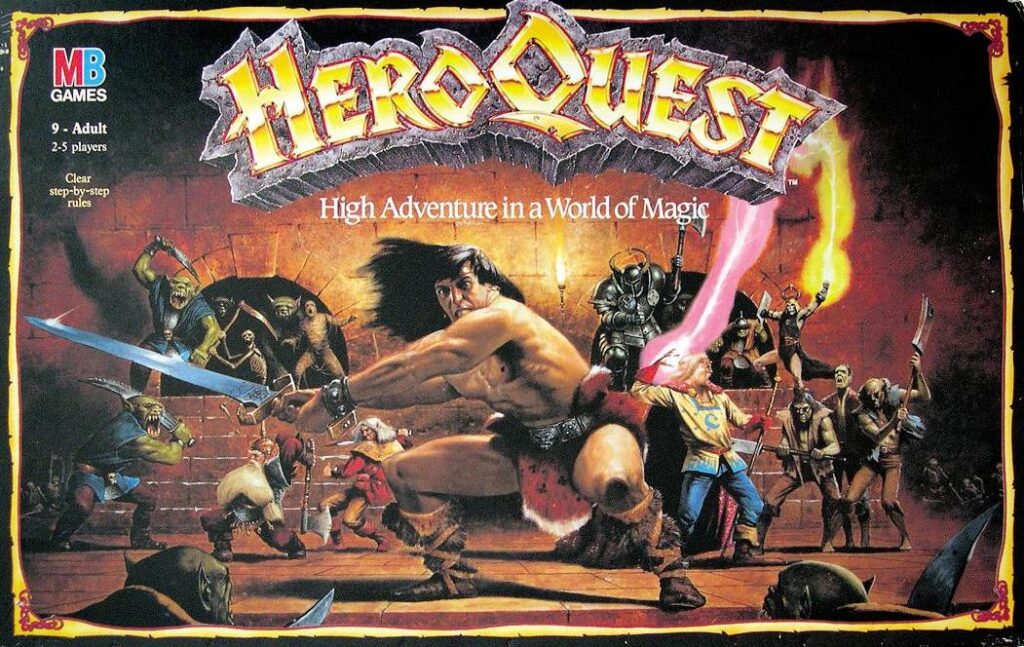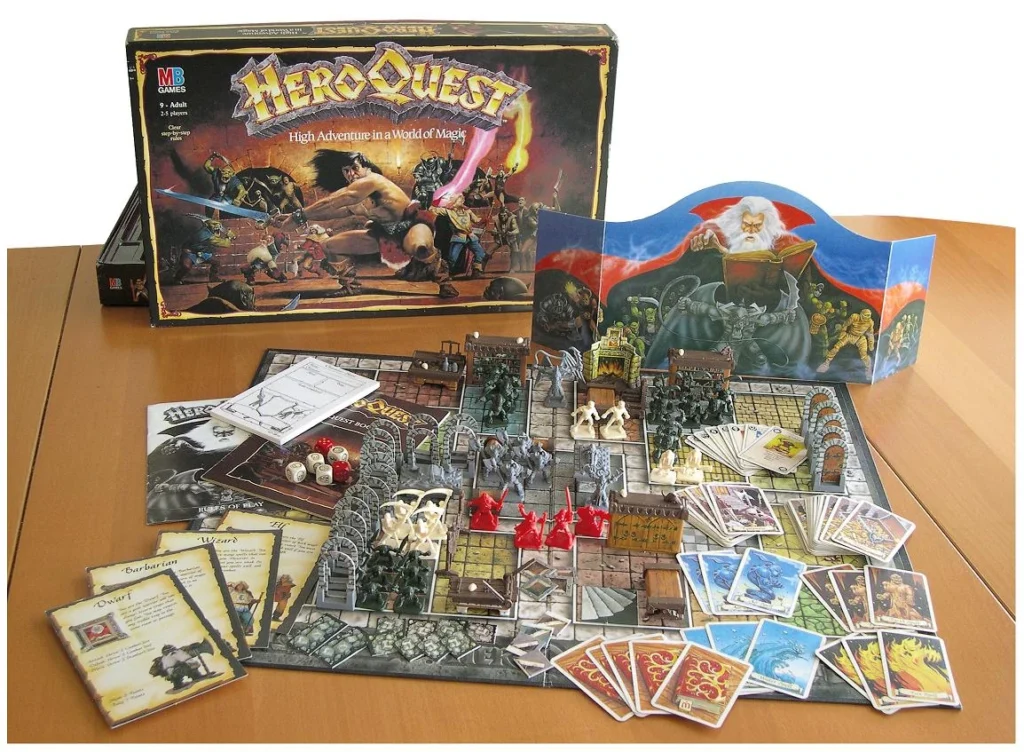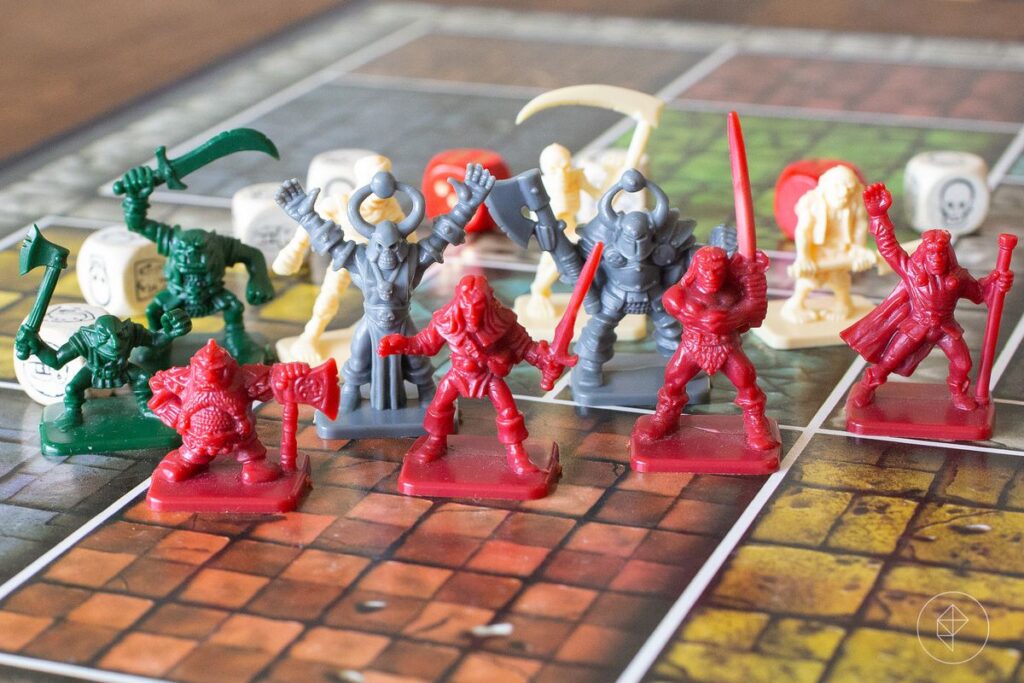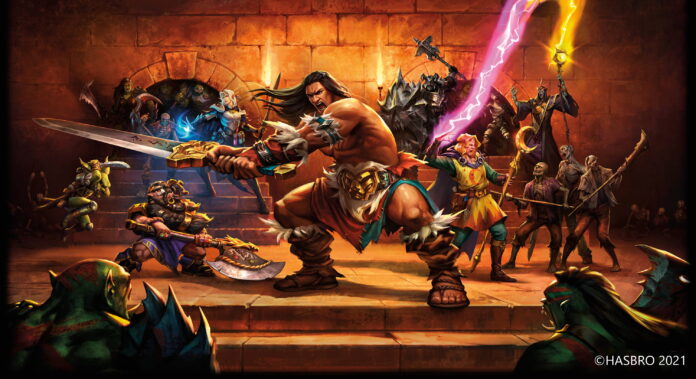In the realm of tabletop role-playing games (RPGs), Dungeons & Dragons (D&D) has long been the undisputed monarch, shaping the imaginations of countless adventurers. However, in the early ’90s, a game emerged that sought to carve its own niche in the RPG landscape – HeroQuest. Created by Milton Bradley in collaboration with Games Workshop, HeroQuest offered a unique and accessible alternative to the intricate world of D&D. As we journey through the dungeons and realms of HeroQuest, let’s explore the reasons behind its enduring popularity and its distinctive contributions to the tabletop RPG genre.

HeroQuest was designed with accessibility in mind, making it an ideal entry point for those new to tabletop RPGs. Striking a balance between simplicity and depth, it provided a streamlined experience that allowed players to immerse themselves in the fantasy world without the steep learning curve often associated with D&D. This approach broadened the appeal of RPGs, inviting a diverse audience to explore the realms of magic, monsters, and heroism.
One of HeroQuest’s key strengths lies in its modular gameplay. The game came with a set of base components, including a modular game board, miniatures, and customizable quests. This modular design allowed players to create their own adventures and scenarios, fostering creativity and replayability. Additionally, Games Workshop released expansion packs that introduced new quests, characters, and challenges, enhancing the longevity of HeroQuest and keeping players engaged with fresh content.

While D&D thrives on its intricate rule sets and character customization options, HeroQuest embraced simplicity. The game featured streamlined mechanics that minimized the need for complex calculations, allowing players to focus on the narrative and strategic aspects of their adventures. This accessibility contributed to HeroQuest’s popularity among casual gamers and families seeking a shared fantasy experience.
HeroQuest’s visual aesthetics played a pivotal role in creating an immersive gaming experience. The detailed artwork, from the box cover to the quest books, evoked a rich fantasy atmosphere that resonated with players. The miniatures, representing iconic fantasy archetypes, added a tangible dimension to the game, enhancing the sense of adventure and heroism.

Decades after its initial release, HeroQuest maintains a devoted fan base that cherishes the nostalgia and memories associated with the game. Its cultural impact extends beyond the tabletop, influencing subsequent generations of game designers and inspiring a resurgence of interest in classic RPGs. In recent years, the game has seen successful crowdfunding campaigns for reprints and updated versions, showcasing the enduring appeal of HeroQuest.
HeroQuest stands as a testament to the enduring allure of tabletop RPGs, offering a gateway into the fantastical realms of imagination. Its accessibility, modular design, and immersive atmosphere have left an indelible mark on the world of gaming. While D&D remains the titan of the genre, HeroQuest’s unique charm and contributions have secured its place in the hearts of adventurers, proving that, in the diverse landscape of RPGs, there’s always room for a legendary alternative.

